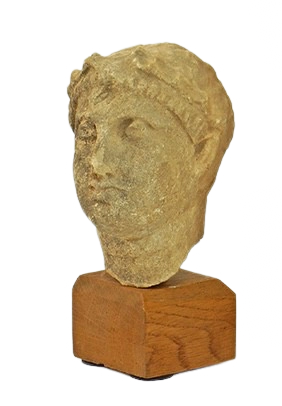
Unmasking the Mundane Reality of Illicit Artifact Sales
Alexis Drakopoulos
Alexis Drakopoulos is a Greek Cypriot Machine Learning Engineer working in Financial Crimes. He is passionate about Archeology and making it accessible to everyone. About Me.
The illegal trade of antiquities is a global problem that threatens the preservation of our shared cultural heritage. While it's easy to imagine this illicit trade as being comprised of cartels, hooded figures, and evil masterminds, the reality is often much more mundane. In this article, we'll explore the problem of illegally sold antiquities and share a recent example that highlights the complexities of this issue.
June 11, 2024
News, Discussion, Artifact
The illegal trade of antiquities is a global problem that threatens the preservation of our shared cultural heritage. While it's easy to imagine this illicit trade as being comprised of cartels, hooded figures, and evil masterminds, the reality is often much more mundane. In this article, we'll explore the problem of illegally sold antiquities and share a recent example that highlights the complexities of this issue.
The Problem of Illegally Sold Antiquities
When one thinks of the illegal antiquities trade, they picture looting and thefts, such as the recent theft of over 2000 antiquities at the British Museum. However, many illegally sold antiquities are not stolen but rather sold without proper documentation or export licenses or are misclassified as modern objects.
It is important to note that these sellers are not always malicious. Not everyone is an expert on antiquities, and some may see a piece of pottery or a statue and not realize that it is ancient instead of contemporary. A common example is when an art collector dies and their estate is sold, the heirs may not know what they have and sell it without realizing that the objects are ancient.
The same is true for the illegal export of antiquities. A childhood friend's father was once diving along the coast of Cyprus, found a piece of pottery, and thought it looked quite interesting. He later tried to take it with him abroad, but thankfully someone noticed, realized this was an ancient artifact, and stopped him from taking it out of the country.
Bust of a Man Sold Online Illegally
As an example, we recently came across a classical bust of a young man, around 8cm tall without the plinth, that was listed for sale in a popular art auction. This usually wouldn't be strange, with dozens of these being sold each year, but this time something was very different. The auction was located in Cyprus itself, a mere few hundred meters from the Department of Antiquities.
Note that sales of antiquities in Cyprus are highly regulated by the Department of Antiquities, and for all intents and purposes are illegal barring a few highly specific exceptions. Furthermore the export of antiquities from Cyprus is even more restricted, with almost no exceptions. This antiquity being sold on an online auction, with many of its bidders likely being international, would be in clear violation of these laws.

The bust was listed as a "stone head of a man" and was sold alongside a larger Greek replica bust. The listing did not mention the age of the object, nor did it mention any provenance or documentation, or that it was ancient.
This could easily be an innocent mistake. Thousands of Cypriot antiquities are likely spread across the island in private residences, and some being accidentally sold as contemporary would not be strange.
We quickly reported this to the Department of Antiquities and contacted the auction house itself. Sadly, we were unable to stop the sale in time, and it sold for a mere 220 euros (including the large replica head).

Thankfully, the sale was to a buyer within the room, and thus located in Cyprus, so it is hopefully not too late to ensure this artifact does not get lost to time or end up illegally exported from Cyprus.
Educating the public about the importance of provenance and documentation when buying antiquities is crucial in combating the illegal trade. Museums, universities, and cultural institutions can play a significant role in raising awareness about the ethical and legal implications of purchasing undocumented artifacts.
The illegal trade of antiquities is a complex issue that requires a multi-faceted approach. Through education, awareness, and international cooperation, we can work towards protecting our cultural heritage for future generations. By recognizing that the problem is not always as sensational as we might imagine, we can be more effective in addressing the mundane realities of the illegal antiquities trade.
How to Report Illegal Antiquity Sales
If you suspect that an antiquity is being sold illegally or without proper documentation, it is essential to report it to the appropriate authorities.
You should always document the sale: Take screenshots or photographs of the listing, including any relevant information such as the seller's details, the object's description, and the asking price. This evidence may be crucial for the authorities to investigate the case. Avoid contacting the seller if you believe they are acting nefariously as this may tip them off and make it harder for the authorities to catch them.
You can and should always contact The Department of Antiquities, if you suspect an artifact is being sold illegally both in Cyprus or abroad.
The Department of Antiquities welcomes reports, You can always contact them at antiquitiesdept@da.culture.gov.cy or by calling them through their Contact page.
